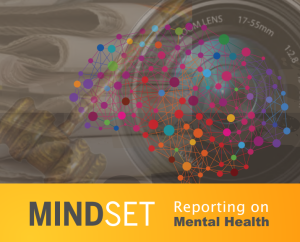
United States
Advances in Mental Health Parity

This marked the beginning of parity for mental health/substance use disorders and medical/surgical benefits covered by Medicare in the United States. Medicare is the federal health insurance program for people who are 65 or older, certain younger people with disabilities, and people with End-Stage Renal Disease (permanent kidney failure requiring dialysis or a transplant, sometimes called ESRD). Before this time Medicare beneficiaries were required to pay up to 50% of the approved amount for mental health and substance use disorder services as opposed to 20% copayment for most other outpatient services. This marked the end of the five-year phaseout of the mental health treatment limitation effectively providing nondiscriminatory outpatient mental health coverage to the millions of Medicare recipients throughout the country.
United Kingdom
Mindfulness Solution for Symptom Relief
The University of Oxford in partnership with the Mental Health Foundation found that practicing mindfulness online can reduce stress, anxiety and depression. These researchers reported on BMJ Open that participants in the their study had a 58% reduction in anxiety, 57% reduction in depression and a 40% reduction in perceived stress. In addition there continued to be a reduction in symptoms of stress, anxiety and depression one month after the course was completed indicating that participants continued to practice the techniques they had learned during the study.



The mindfulness class used in this study was developed at the Centre for Mindfulness Research and Practice, Bangor University, UK. It can be found here.
Another useful and free online course, Mindfulness-Based Stress Reduction, has been developed by the University of Massachusetts Medical School in the the United States and can be found here.
March
Mental Health System at a Crossroads, Australia

A new report by Inspire Foundation based upon a collaboration between EY and ReachOut.com assessed the demands on and provision of services for Australians with mental health issues. It estimated that if the mental health system remains the same in Australia it will require 9 billion dollars to increase services in order to meet the current needs of the population. The good news is that the report recommends an overhaul of the entire mental health system with a refocus on prevention and early intervention as well as promotion of self-help options. In this case efficiency and sustainability could translate into more services that help people help themselves and their peers at earlier stages of distress. Sounds like a winning combination.
The entire report can be found here.
Canada
Changing the Mindset

A new media guide, Mindset: Reporting on Mental Health, was launched. It is a guide for journalists by journalists and promotes more factual and less stigmatizing coverage of mental health issues. It also encourages journalists to address systemic issues in mental health. It has been issued in both English and French versions. The Canadian Journalism Forum on Violence and Trauma led the effort with additional funding from the Mental Health Commission of Canada.
It can be found here.

